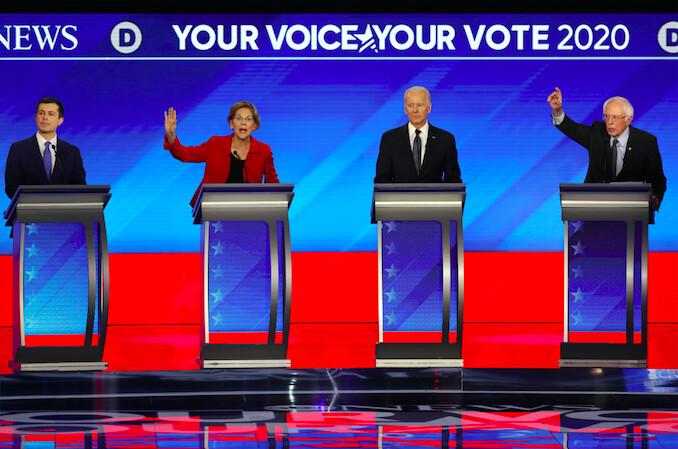Nearly all top-tier Democratic Party contenders took to national television on Feb. 9 to make their cases on the talk-show circuit just days before this week’s first-in-the-nation presidential primary in New Hampshire.
In the lead-up to the primary, recent polls also indicate that former South Bend, Indiana, Mayor Pete Buttigieg and Sen. Bernie Sanders (I-Vt.) are the two front-runners in the state. The pair also finished atop last week’s Iowa caucus results, which the chairman of that state’s Democratic Party recently said would be independently reviewed because of technological and reporting issues.





